Call Centre Best Practices
Course Overview

Call Centers are the core success of any service oriented organization. It is one of the most competitive and demanding jobs now-a-days. After working for a long time in Call Centers the agents starts to have less motivations towards attending customers as the repetitive tasks lend themselves to boredom, causing the agents to become unmotivated to perform at their high levels. While it’s natural for agents to become disinterested after doing the same thing over and over, organizations faces the harsh reality of less productive agents, less interest to attend customers with passion, high turnover rates and above all less satisfied customers.
Goal of Course:
The words that we say is only one component of the communication process. This program identifies call center attitude problems and direct call center agents to develop a positive attitude towards customers and adhere to the call center best practices. Thy will be able to examine strategies that allows them to do more and achieve more with their customers.
During this program Agents will be able to recap “what really matters” and understand the effect of their attitude and behavior on the customers. They will be able to dive deep to understand the impact of first impressions, and to handle the customer concerns with passion.
Duration:
2 Days
Language:
English
Training Objectives
- Understanding the key factors successful factors for the call center agents
- Steps required before, during and after the call
- The importance of listening
- Using the active listening gestures
- Effect of our attitude on the customers and on the company
- Body language and its effect on the verbal message
- The importance of going the extra mile
- Why we should thrive to achieve brand advocates
- The importance of showing empathy, sympathy and compassion
- Treating the customers as they deserve to be treated
- Using our voice and conveying the message in the suitable tone of voice
- Dealing with feelings and working with facts
- How to effectively communicate with a customer who has a complaint
Module Outlines
Module 1: Getting Started
- Course Objectives
- Case Study
- Self-Assessment
Module 2: Why the Call Center
- The Call Center Best Practices
- The Vicious Cycle
- What Really Matters
Module 3: Diffusing Angry Customer by LEAPS Process
- LEAPS: Listen-Empathize-Apologies-Probe- Share Solution
- Video Review
- Role-Plays
Module 4: Verbal & Non Verbal Messages
- Listening Skills
- Probing and Funneling Techniques
- When We Say “No” Delivering Bad News
- Rapport
- The Cold Call & The Warm Call
- Feeling or Facts
Module 5: The Angry Customer
- How angry customer situations can make you feel
- How most people respond
- “Working with” vs. “handling”
- Things that Really Help
Customized Learning
Leap To Success is offering a variety of learning options to meet current realities and can be adapted to suit your business needs. These options include variants of online, blended and on-site course formats.
Face To Face Learning
Enabling you to have a face to face interactive and engaging learning experiences led by renowned industry experts and thought leaders with extensive practical experience who will employ a variety of interactive learning techniques, including short high-impact videos, case studies, assessments, role plays, in addition to on-going support.
Virtual Learning Labs
Interactive online learning held in real-time using Zoom and are led by international subject matter experts who incorporate case studies, breakout rooms, guided practice, simulations and discussions to maximise your learning experience.
General Methodology
Similar to any L2S training program, this program offers an interactive learning experience in which will allow the delegates to reflect on their learning through an informative, indulging, and fun classroom experience. The design of the training session focuses on the following attributes.
- Concrete Experience: The delegates will learn by doing
- Reflective Observation: Reflecting on the newly experienced skill-set
- Abstract Conceptualization: Developing deeper understanding to the learned concepts
- Active Experimentation: providing the delegates with realistic tools that can be tested in the real life
Sign Up For the Course
